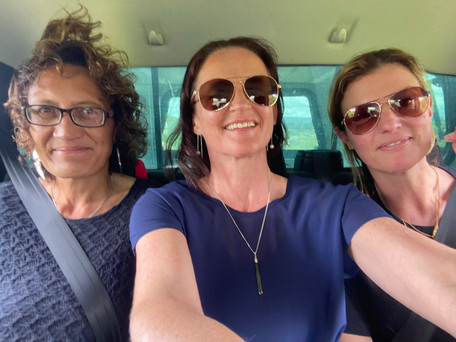Drains are Streams - Pilot Projects Confirmed for 2024 to Restore Waterways
- Jan 8, 2024
- 3 min read
Updated: Jan 11, 2024
A new collaborative initiative, supported by dedicated individuals and key partners aims to address the critical state of Aotearoa's freshwater ecosystems in urban environments. In 2024, Tāngaro Tuia te Ora, the Endangered Species Foundation will launch two new pilot projects for the "Drains are Streams" project, with the aim to empower communities to adopt drains and rejuvenate waterways, particularly for our most endangered freshwater fish species.
New Zealand's freshwater crisis has reached alarming levels, with widespread pollution and deteriorating water quality. Reports reveal that 45% of rivers are now deemed unsafe for swimming, and almost half of the lakes are in poor health. The situation has dire consequences, with 76 percent of native freshwater fish facing extinction or being at risk, including mudfish, whitebait, tuna (longfin eel), and Stokell’s smelt. Additionally, two-thirds of freshwater native bird species are also under threat.
The journey toward engaging urban communities to restore waterways took a significant step forward following a powhiri and planning session at Matahuru Marae in Ohinewai in late December and key actions for 2024 include producing education materials and trialling the programme with tamariki.

Pictured left to right: Natalie Jessup (GM Tāngaro Tuia te Ora), Christie Goodwin (Relationship Manager Tāngaro Tuia te Ora), Tawera Nikau (Chair, Tāngaro Tuia te Ora), Rongo Kirkwood (Trust Waikato), Stu Muir (Co-chair, Waikato River Authority) . Photo thanks to Abi Foy (AquaWatch). Two trustees, Rangitahi Wharepapa and Emma Giesen, virtually joined the hui.
Looking ahead to 2024, in collaboration with AquaWatchNZ and Wai Wanaka, the project will produce a kete of resources, including informative factsheets on "Adopt a Drain" and native freshwater fish species. Additionally, signage featuring endangered tuna (eels) and ika (fish) will be attached to adopted drains in the Waikato rohe. The innovative AquaWatchNZ device, providing real-time data on water health, was also introduced at the hui, setting the stage for how we will measure impacts.
Once education materials are developed, two education programmes will be piloted with Ohinewai Primary and the early childhood centre, Borman Village Kids in Rototuna. These programmes will test resources, gather feedback from kaiako (teachers) and tamariki (children), and ensure adaptability to meet the needs of the community.
Having some beautiful kai to fuel our tinana and driving to see the inspiring restoration work that is taking place on Tawera’s farm at Ohinewai. Ngā mihi nui ki a koutou - thank you to everyone who has been involved in developments so far. Community involvement and contributions have been crucial in shaping this initiative and a heartfelt thank you is extended to everyone in the hāpori who have played a role in this vital mahi, giving us advice and feedback to shape these plans. Trustees past and present, and our Advisors are also vital in providing sage advice and expertise on a volunteer basis and we are so grateful to you for your time.
We also extend a massive thank you to our supporters for their generous donations, and funders who have helped develop this new initiative - Trust Waikato, WWF and the Tindall Foundation, LUSH, and Stout Trust. By prioritising the health of our wai, our water, we are helping safeguard the well-being of our communities. Restoring our awa means providing habitats for our ika (fish) and nurturing the mauri (lifeforce) of our waterways, ensuring future generations can rely on these vital sources of sustenance for both kai (food) and intergenerational wellbeing.









